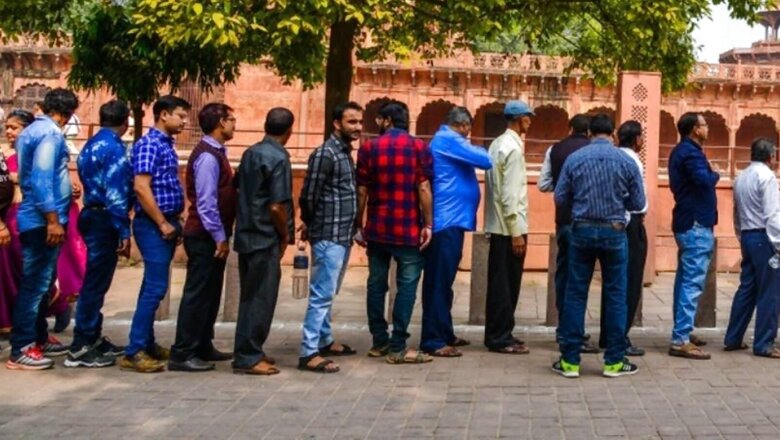
views
The Supreme Court on Thursday set aside the Punjab and Haryana High Court’s order staying the Haryana government’s law providing 75% reservation in private sector jobs to local candidates. The court also asked the high court to decide on the issue within a month and directed the state not to take any coercive steps against the employers for now.
On February 3, the Punjab and Haryana High Court had put on hold Haryana’s 75% quota.
THE DOMICILE QUOTA
Last year, chief minister Manohar Lal Khattar had said the Haryana State Employment of Local Candidates Act, 2020, will be made applicable from January 15 this year.
Although the government had promised the Act would apply to all jobs that offer a gross monthly salary of up to Rs 50,000, it issued another notification last year specifying that the upper cap had been reduced to Rs 30,000.
It also made it mandatory for employers to register all such employees “who draw gross monthly salary of not more than Rs 30,000 per month” on a designated portal of the Haryana Labour Department.
“In exercise of the powers conferred under section 3 of the Haryana State Employment of Local Candidates Act, 2020 (3 of 2021), the Governor of Haryana hereby notifies thirty thousand rupees as gross monthly salary or wages for registration. This notification shall come into force with effect from the 15th January 2022 i.e. the date of commencement of said Act,” read the notification.
Khattar had said the Act would be applicable to private sector companies, societies, trusts, limited liability partnership firms, partnership firms and any entity that employs 10 or more persons on salary, wages or other remuneration for the purpose of manufacturing, carrying on business or rendering any service in Haryana.
In March 2021, Haryana Governor Bandaru Dattatreya gave his assent to the Haryana State Employment of Local Candidates Bill, 2020.
India Inc had called for a re-examination of the legislation, claiming that it would lead to multinational firms leaving the state.
WHY IT MATTERS
The Centre for Monitoring Indian Economy (CMIE) recently released the unemployment status report of India for December 2021. According to the report, the unemployment rate in the country was 7.91% in December. It was 7% in November. Haryana topped with an unemployment rate of 34.1%, followed by Rajasthan (24.1), Jharkhand (17.3%), Bihar (16%), and Jammu and Kashmir (15%).
THE PRECEDENT
Other states, too, have enacted laws to provide reservation for their local citizens in the private sector.
ANDHRA PRADESH
The first to introduce such a quota, through the Andhra Pradesh Employment of Local Candidates in the Industries/Factories Bill, 2019, the state asked the existing industries to ensure 75% employment to local candidates within three years from the date of commencement of the Act.
Status: It has been challenged in the high court on the grounds that it is in violation of Article 16(2) and (3) of the Constitution that prohibits discrimination in employment based on the place of residence. It is still to be implemented.
KARNATAKA
In October 2020, the Karnataka government issued an order that natives of the state should be given 75% reservation in private companies registered within the state.
Status: No check on its implementation on ground.
MADHYA PRADESH
Madhya Pradesh CM Shivraj Singh Chouhan has promised a 70% private sector job reservation for locals.
Status: The law is yet to be brought into effect.
MAHARASHTRA
The state, in August 2020, announced that it would make it mandatory for the private sector to reserve 80% of its jobs for domiciled citizens – residents who have been living in the state for more than 15 years.
Status: The law is yet to be brought into effect.
While Telangana had announced tax cuts for industries that reserved jobs for locals, in Madhya Pradesh, the government had declared that it would reserve all government jobs for students who have cleared Class 10 and 12 examinations from a school in the state. However, in the absence of enforcement mechanisms, the promises and laws have just remained on paper.
Read all the Latest News India and Breaking News here

















Comments
0 comment